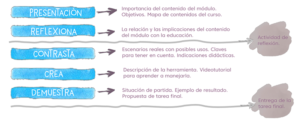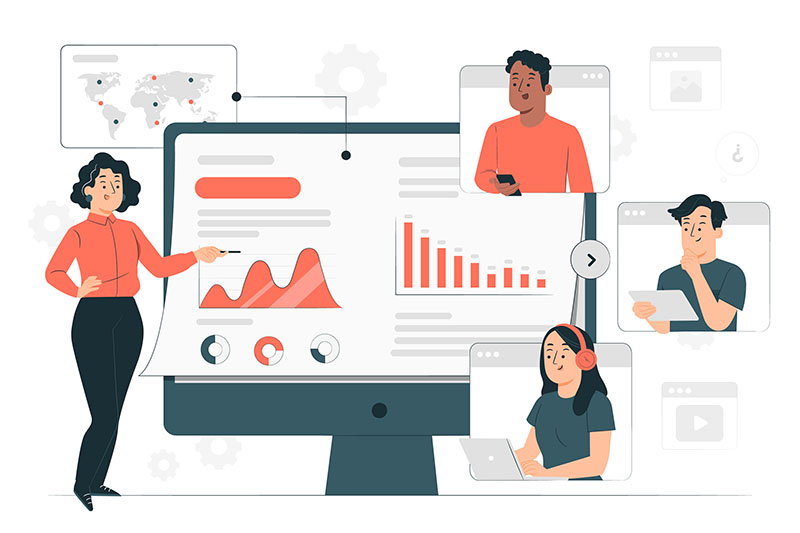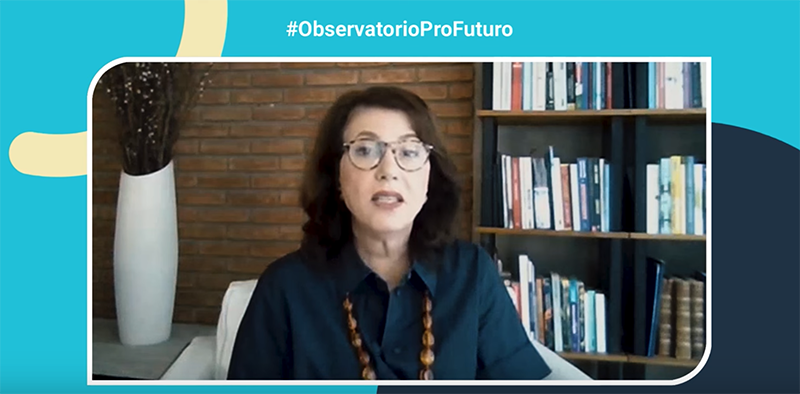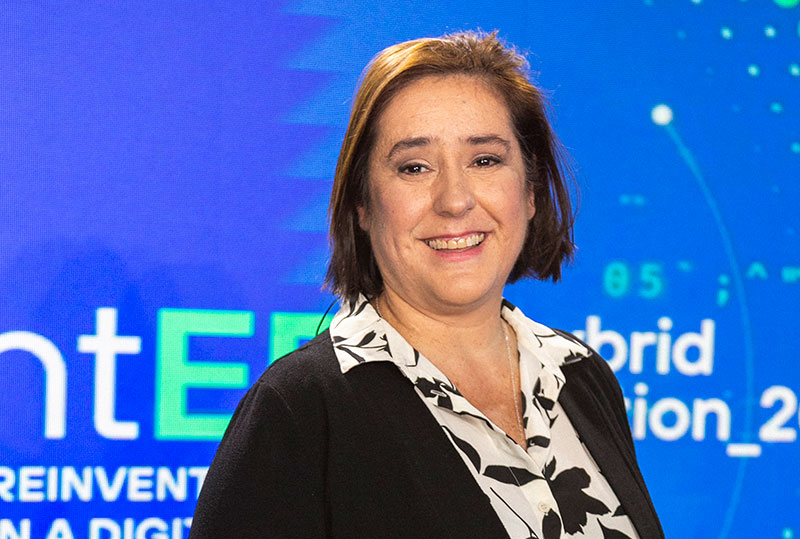Can you imagine being able to explain the fundamental laws of physics through an immersive video in which students can become Isaac Newton himself and imagine them with him? They can also learn literature through a podcast. And, perhaps, you can test their knowledge of history by designing a team quiz in which students answer questions in a quiz created with Kahoot or a similar application.
Interactive images, videos with decision trees, blogs and educational websites, podcasts, videos… the possibilities of integrating digital technology in the classroom are becoming greater and more unimaginable (virtual field trips are almost around the corner). However, to realise the full potential that technology can bring to education, teachers need to learn how to handle it and integrate it into their daily pedagogical practice.
Digital teachers is a proposal by ProFuturo Foundation to help teachers become familiar with the use of different technological tools that allow them to create memorable learning experiences for their students. The proposal consists of several courses, grouped by level. There are four levels of digital competence (basic, intermediate, advanced and expert) which can be tailored to the level of the teachers. Within each level, different courses are offered focusing on different technological tools.
Digital teachers is a proposal by ProFuturo Foundation to help teachers become familiar with the use of different technological tools that allow them to create memorable learning experiences for their students.
Digital Teachers by levels
Level I. Basic Digital Teacher
At this level the initial digital skill is addressed. With the three courses at this level, teachers will be able to learn how to create basic digital content for use in their classrooms. They are taught to create and edit images, audios and videos to be used for educational purposes.
Level II. Intermediate Digital Teacher
At this level, the development of digital educational resources for the design of teaching and learning sequences is studied in depth. Teachers learn how to create interactive images and videos (e.g. images that can link multimedia material or videos with decision trees and video quizzes) and how to assess with digital tools (create a quiz with Kahoot).
Level III. Advanced Digital Teacher
Level III of Digital Teachers deals with the design and production of published content that enables sharing and constructing in a network. In this way, they are taught to manage the information that exists on the Internet in order to publish their own or selected resources and materials through a blog and to design and create an educational website.
Level IV. Expert Digital Teacher
At the Expert level, ICT is put at the service of active learning. In this module, the knowledge acquired is integrated into a Project-Based Learning proposal. A single course is proposed with three variants: radio, film or web-based.
The courses, which are each approximately 20 hours long, work independently so that each teacher can take the course that best suits his or her needs. However, as it is a gradual proposal, it can be approached as a training pathway in which different skills are addressed.
How are the courses structured?
The courses offer teachers the opportunity to reflect on the pedagogical possibilities of the item they are going to learn to use, to know when this item can be more useful than other resources and to make a practice to share with other teachers. To achieve this, it is structured around five modules:
- Presentation: the concepts to be worked on in the module are introduced, as well as the objectives and skills to be developed.
- Reflection: in this section, teachers have to reflect on the pedagogical potential of the ICT element of the course. That is to say, they will be able to reflect on the possibilities that this element offers them in their classroom practice. This module proposes a practice task that promotes reflection among peers. In the online mode, a peer-to-peer activity is proposed on a platform. For the off-line version of the course, it is proposed to transfer the reflection activity to a face-to-face group session.
- Compare and contrast: different class scenarios are presented in which the element to be worked on may have a distinctive value compared to other alternatives.
- Create: through video tutorials the element or tool is presented in order to develop educational resources.
- Demonstrate: teachers should apply what they have learned to one of the subjects they teach and share it with other teachers, either online or in a face-to-face session if the course is taken in off-line environments.

So far, the programme has been implemented in Argentina, Colombia, Costa Rica, Ecuador, El Salvador, Mexico, Panama, Uruguay and Venezuela.
It is clear that new technologies in education offer enormous potential to accelerate learning and make it more accessible to all. But for this to happen, teachers must be trained to use these technologies. Digital Teachers is ProFuturo Foundation’s response to this great challenge in education today.






